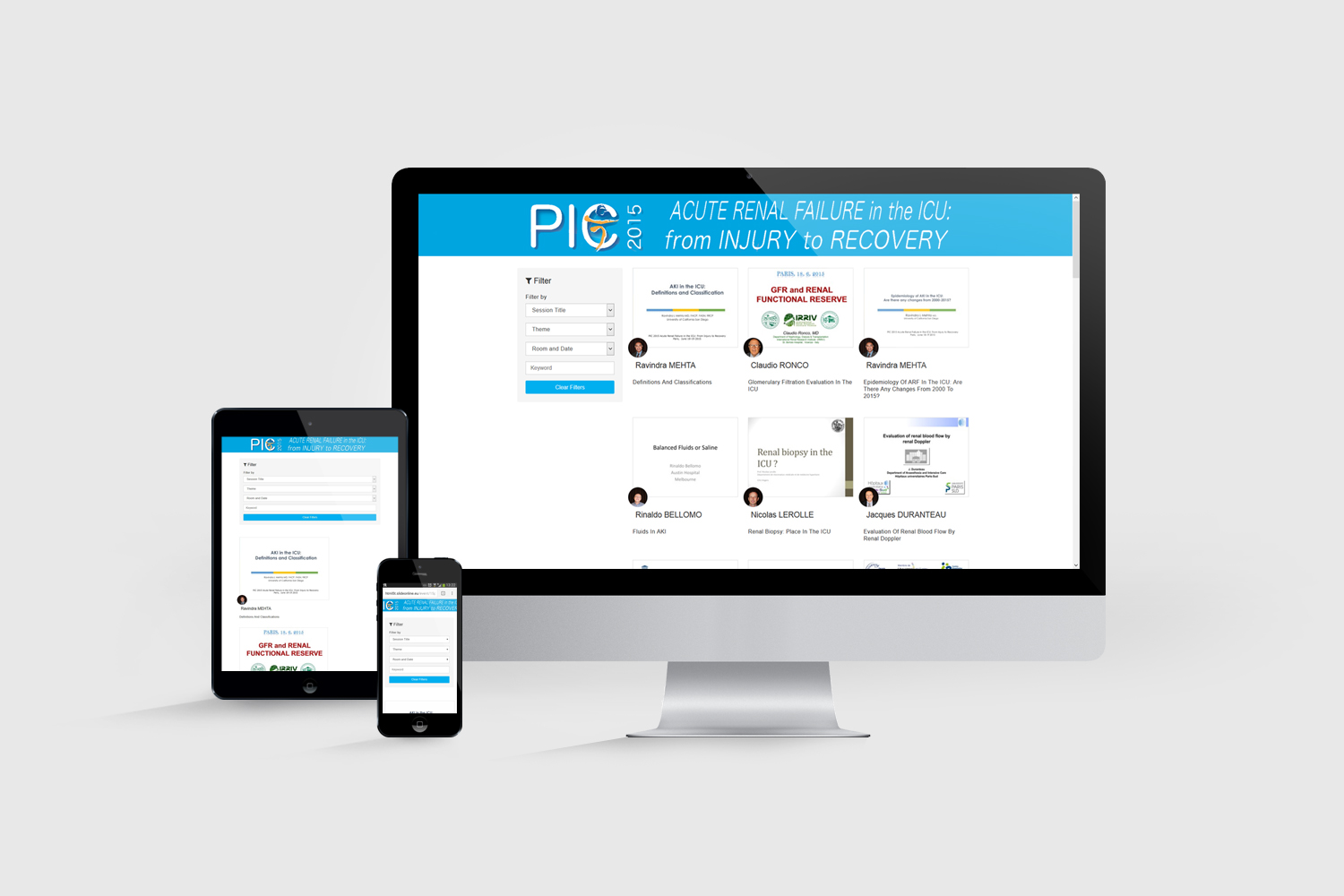Posts

A modern design for your webcasts
Since 2009, Open Slide & Services puts conferences on the web. We capture, stream and record conference content and provide an on-demand, HD video replay area for your audience.
We are proud to launch our newest release of ‘Slide Online’, a mobile-friendly webcast platform based on HTML5 technology. Our focus on this future-friendly technology provides our customers with a tool to create a long-term strategy for their online (video) content.
The foundation for this new release is based on the following principles:
1) Accessibility from desktop & mobile devices
Smartphones & mobility has changed the way we work. It is no longer safe to assume that your members or employees watch your conference webcasts from a desktop computer. Internet usage on mobile devices exceeded PC usage in 2014 and continues to grow each day.
A recent survey (Connected Life 2014) showed that the French residents polled owned on average 4.6 devices, compared with 4.8 in the UK and Netherlands and 4.5 in Belgium. By 2017, there will be 5 devices/connections for every internet user.
2) Responsive design
Responsive design is the answer to accessibility. Not providing mobile viewing support means a portion of your audience deals with a broken user experience when visiting your video content. By choosing a responsive design the web page will adjusts its layout and appearance according to the size of the screen used to view it.
HTML5′s responsive design supports future devices and browsers, meaning that even with future devices, your audience will likely see an optimized version of your content.
3) Cross-browser and OS support
Your audience is not only accessing your conference proceedings at work, they are using their personal devices. Given the wide range of operating systems and browsers people are using, it is important that your website is usable across all major media, whether it be popular browsers, mobile devices, or any other web browsing devices.
Because HTML5 is HTML, your content will display on older, outdated browsers as well.
4) No required plug-ins or players
Plugins are one of the most frequent causes of browser slowdowns and crashes; they don’t necessarily adapt well to smaller touch screens and the plugin Flash has been banned on iOS for years.
Flash usage is down by 18% since 2011 and Flash has been increasingly under fire for the security of their outdated plug-in. Microsoft ended development on Silverlight a while ago and has announced that Silverlight will not be supported in its brand new browser Microsoft Edge, Windows 10’s default browser.
5) Better performance
Better performance leads to faster load times. The amount of processing power needed by a browser to render a HTML5-based page is considerably lower than the amount of processing power needed to load Flash content. Considering that a lot of people use devices with limited performance (smartphones, tablets) faster load times is a necessity.
6) Enhanced Security
Browser plug-ins are the biggest target on your computer; if an attacker finds a hole in your browser plug-in, they can generally exploit that hole to gain access to the system. By eliminating the use of plugins, your users don’t need to install or enable possibly harmful plugins; it also provides a smoother experience for those users inexperienced with plugins.
7) Uncluttered user interface
Our platform presents a clean, uncluttered interface; ensuring that users have a smooth, enjoyable experience while searching and viewing conference proceedings. The responsive and lightweight platform can be personalised and secures an effortless mobile experience.
Do you want to make the switch to HTML5, see a demo of our webcasting platform or talk more about the future of your online content? Contact our team for more information.





